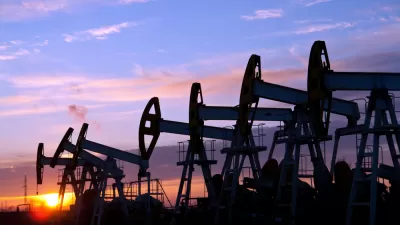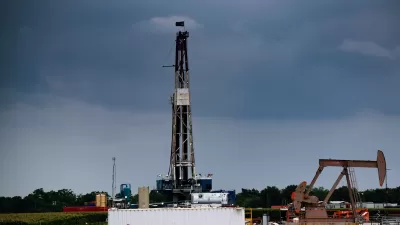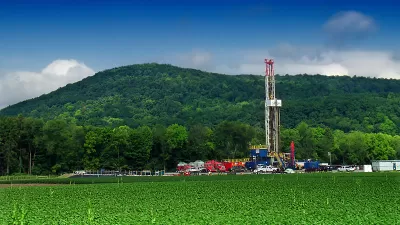New York Times economics writer and Nobel laureate Paul Krugman analyzes two major reasons for increasing oil drilling - reducing unemployment and lowering gas prices, and describes why it does neither.
Paul Krugman asserts, "The irony here is that these claims (of reducing oil prices and unemployment) come just as events are confirming what everyone who did the math already knew, namely, that U.S. energy policy has very little effect either on oil prices or on overall U.S. employment".
Acknowledging how fracking has increased both oil and natural gas production, he also notes that the increased natural gas supply has caused those prices to plummet, yet oil prices continue to rise.
Krugman repeats what others have stated - oil is priced on international markets, while natural gas prices are set domestically. Factors outside of supply and demand are at work, including rising demand from China and Mideast tensions that raise the price due to speculation. However, Krugman himself argued against blaming speculators for the rapid increase in oil prices in June, 2008.
Next, Krugman turns to what is now the third largest oil producing state, North Dakota, having just replaced California where oil production is on the wane. North Dakota enjoys the nation's lowest unemployment rate, largely attributed to the booming oil drilling in the Bakken shale rock formation.
"I have to admit that I started laughing when I saw the Wall Street Journal offering North Dakota as a role model. Yes, the oil boom there has pushed unemployment down to 3.2 percent, but that's only possible because the whole state has fewer residents than metropolitan Albany.
The comparable-sized fracking boom in Pennsylvania has had hardly any effect on the state's overall employment picture, because, in the end, not that many jobs are involved."
Thanks to Kenyon Karl
FULL STORY: Natural Born Drillers

Planetizen Federal Action Tracker
A weekly monitor of how Trump’s orders and actions are impacting planners and planning in America.

Map: Where Senate Republicans Want to Sell Your Public Lands
For public land advocates, the Senate Republicans’ proposal to sell millions of acres of public land in the West is “the biggest fight of their careers.”

Restaurant Patios Were a Pandemic Win — Why Were They so Hard to Keep?
Social distancing requirements and changes in travel patterns prompted cities to pilot new uses for street and sidewalk space. Then it got complicated.

DC Area County Eliminates Bus Fares
Montgomery County joins a growing trend of making transit free.

Platform Pilsner: Vancouver Transit Agency Releases... a Beer?
TransLink will receive a portion of every sale of the four-pack.

Toronto Weighs Cheaper Transit, Parking Hikes for Major Events
Special event rates would take effect during large festivals, sports games and concerts to ‘discourage driving, manage congestion and free up space for transit.”
Urban Design for Planners 1: Software Tools
This six-course series explores essential urban design concepts using open source software and equips planners with the tools they need to participate fully in the urban design process.
Planning for Universal Design
Learn the tools for implementing Universal Design in planning regulations.
Heyer Gruel & Associates PA
JM Goldson LLC
Custer County Colorado
City of Camden Redevelopment Agency
City of Astoria
Transportation Research & Education Center (TREC) at Portland State University
Camden Redevelopment Agency
City of Claremont
Municipality of Princeton (NJ)





























